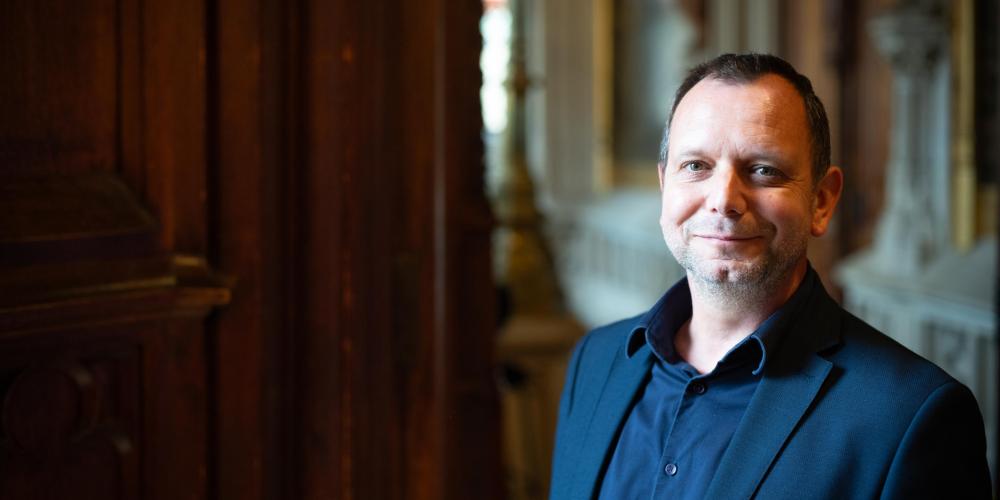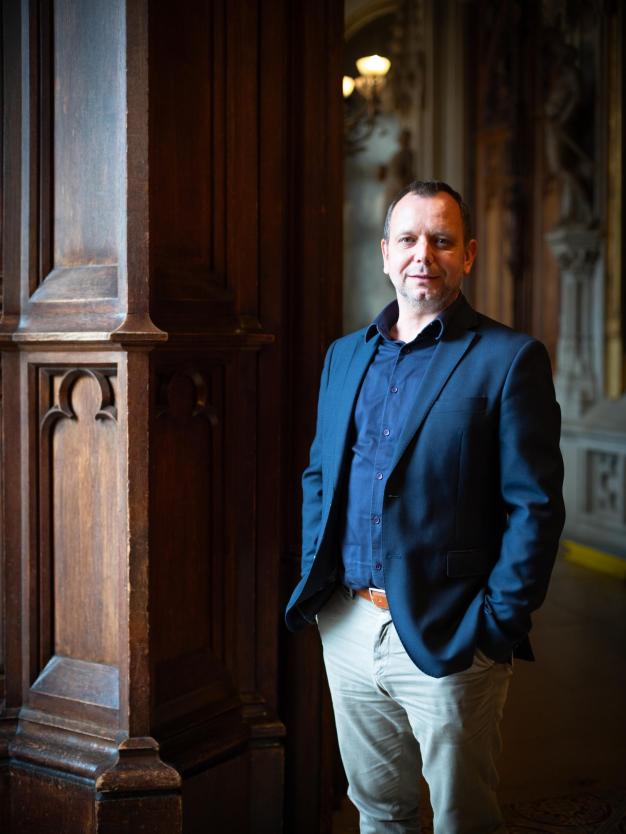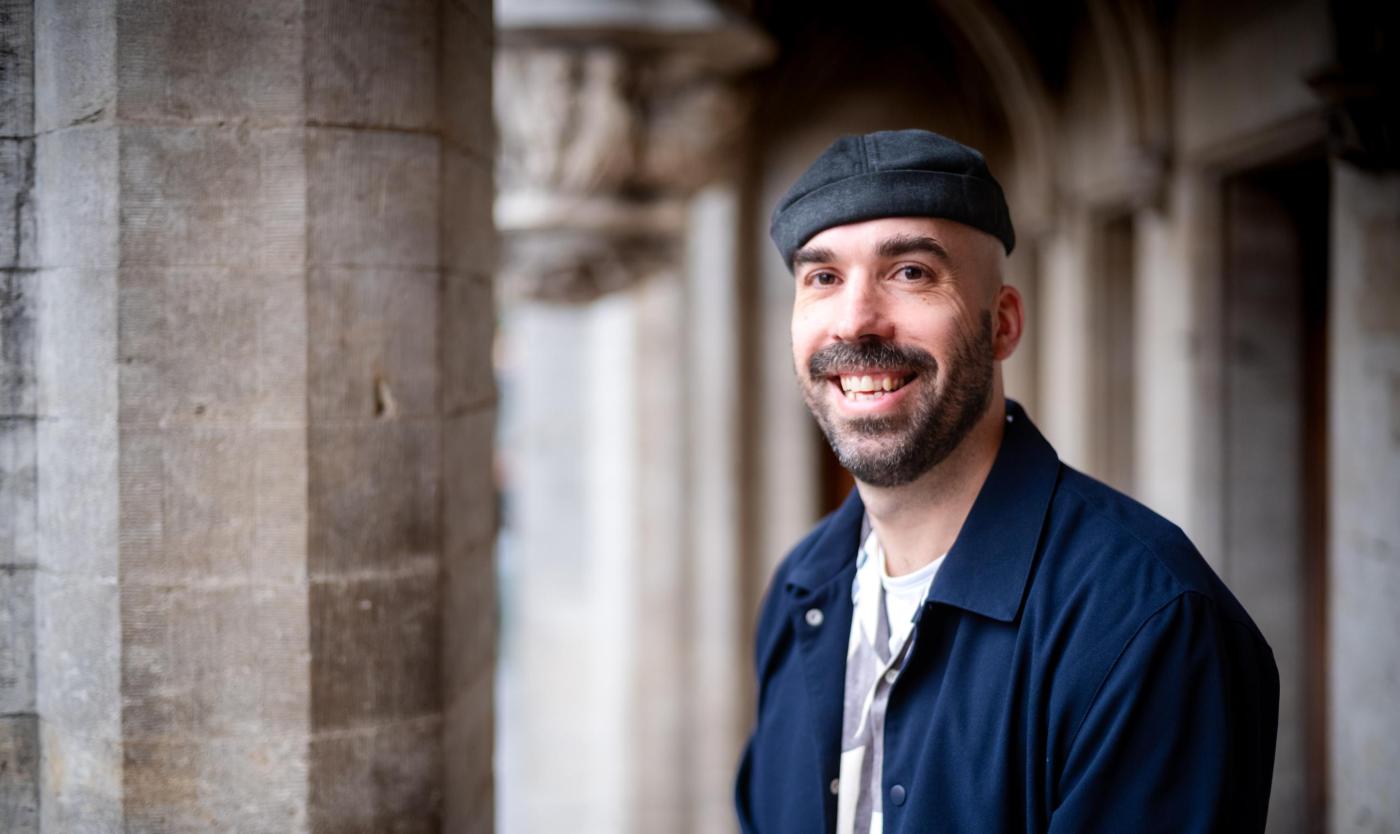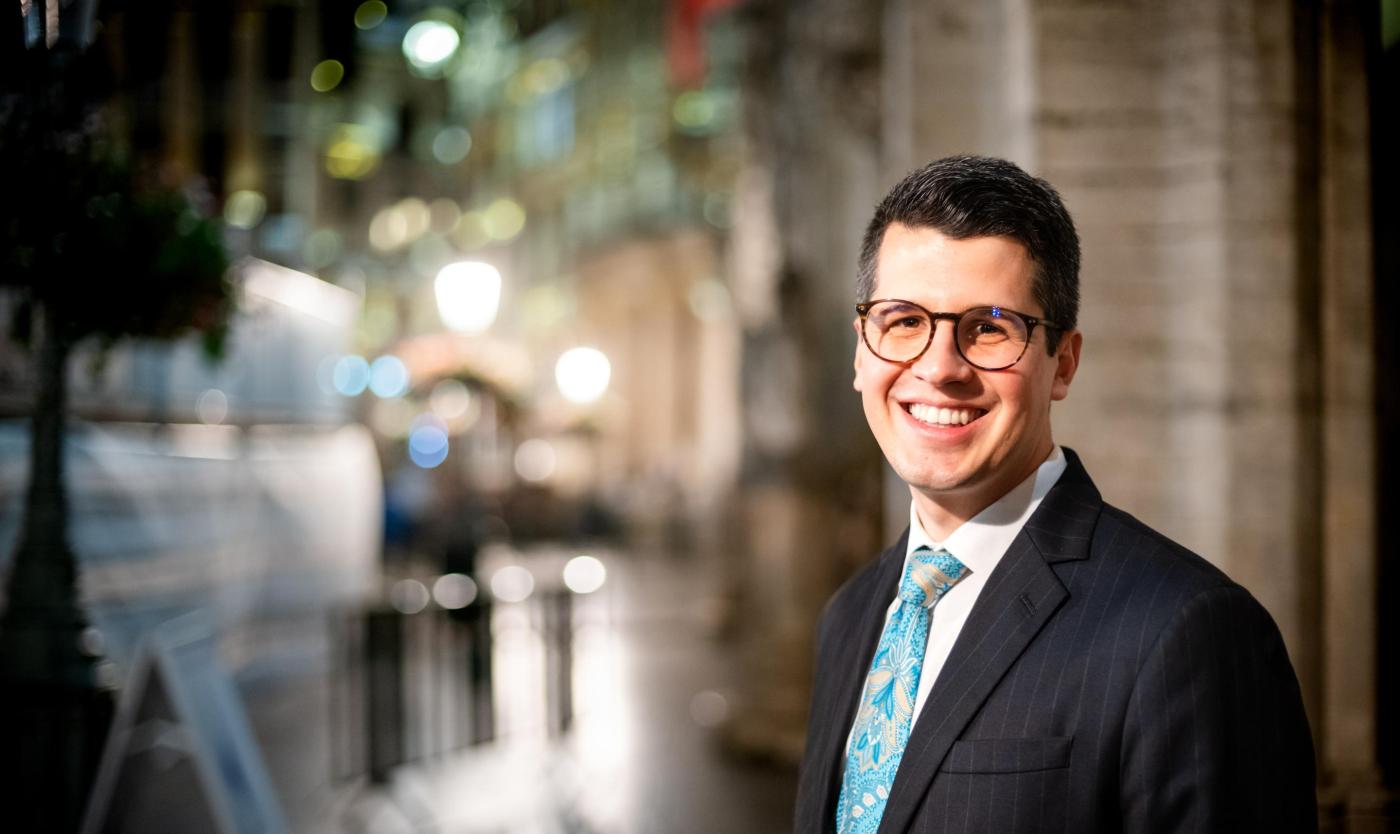
Werner Van Herle graduated in 1997 from VUB with a Master’s in Criminological Sciences. Today, at 49, he has been Head of Safety and Prevention for the city of Mechelen for over 20 years. ‘A purely repressive approach with harsh sanctions hardly exists anymore. We are looking for solutions to guarantee the safety of our city in the long term.
How has your professional career evolved so far?
Werner Van Herle: “My first job was with the federal government’s Department of Home Affairs, where I supported local authorities in their safety and prevention policies. After four years, I moved to Mechelen as Head of Safety and Prevention, a position I still hold today. My work is broad and policy-focused, from social prevention and city monitoring to administrative enforcement – such as issuing fines – and exploring innovative projects to make our city safer. Over the years the job has grown more complex: in 2002 we mainly faced petty crime that unsettled certain streets or neighbourhoods, but in the past decade global trends like radicalisation, polarisation, terrorism and organised crime have had a much greater impact on safety and on how safe people feel. On top of that, we increasingly deal with issues such as psychological vulnerability, addiction and homelessness – challenges with no easy answers, yet ones that weigh heavily on the city’s sense of security.”
“Over the past decade, global trends have reshaped how safety is experienced in cities”

What memories do you have of your student days at VUB?
“What I remember most is the accessibility of lecturers and professors. There was always time and space to ask questions. I’m still in close contact with Els Enhus, professor emeritus of criminology since 2018, and I occasionally give a guest lecture in her classes. She has stayed with me from my student days, as have Prof. Sonia Snacken and Prof. Christian Eliaerts, the two leading criminologists of the time, who had a major influence on how I think about safety.”
Did you already have a clear idea of what you wanted to do after your studies?
“Not at all. When I started criminology at VUB 30 years ago, the programme had only just become a stand-alone field. Before that, you first had to study law or psychology before you could move on to criminology. In the early 1990s, it suddenly became possible to start straight away, which also meant the programme itself was still searching for its exact shape. In any case, we were offered a very wide range of courses. My thesis back then was on organised crime and international police cooperation with countries of the former Eastern Bloc, with the passionate Tom Van den Broeck as my supervisor. When I presented that thesis to police officers at the time, it was well received, but I remember someone telling me afterwards: ‘You need to step out of your comfort zone more. If you really have talent, you’ll make it.’ That gave me the courage to take my first professional steps.”
Your daughter graduated last year with a Master’s in Management from the Solvay Business School. Do you think student life is different now?
“I do have the impression that today, thanks to the credit system, you can tailor your programme much more to your own interests. Back in our day, the choice was far more limited. You had an undergraduate and a graduate track, with only a small number of electives. For young people who, like me back then, don’t yet know what they want to become, those choices may be less obvious, but on the other hand they do give you the chance to try out more things. Of course, the spirit of the times also plays a role. Anyone graduating last year studied for a year and a half under COVID restrictions, with all the consequences that come with it. Online education has undoubtedly had a psychological impact. I’ve seen it with my own daughter. She had face-to-face teaching in the first semester of her first year, but after that it was over. The student life was gone.”
Has VUB strongly influenced your way of thinking?
“I went to secondary school in Geel, in a Catholic college where boys and girls were taught separately. My decision to study in Brussels was a deliberate one. I wanted to experience city life and a different way of thinking. I’ll never forget the sense of freedom the campus radiated at the time. After 12 years in a Catholic setting, stepping into that free, humanist world was a real breath of fresh air. I was allowed to be critical of imposed dogmas – and even encouraged to be. A true revelation.”
“After 12 years in a Catholic setting, entering that free, humanist world was a real breath of fresh air”
How do you try to make a difference in society today?
“What I find fascinating about my current job is the many international contacts that inspire me for our local policies. We happen to have a well-known mayor (Bart Somers, ed.), who attracts interest beyond Belgium’s borders, which works in our favour. It’s particularly interesting to hear how others approach safety, what challenges they face in their cities or districts, and how they tackle them. It’s also a valuable benchmark. I notice, for instance, that foreign colleagues too hardly ever take a purely repressive approach with harsh sanctions anymore. Their thinking is far more nuanced. That strengthens my conviction that better solutions exist to achieve lasting safety in a city.”
“If you look at Mechelen, it was — let’s be honest — one of the worst performers when it came to safety. Today, it ranks among the safest cities in Flanders. I’m quite proud of that and I want to keep contributing in the future. We also work closely with VUB, for example in the SAMEN project, which stands for Swift, Alternative, Tailored, Efficient and Nearby. The project offers tailored approaches for offenders of common crimes to prevent reoffending, and it ensures faster follow-up of offenders engaged in long-term, repeated criminal behaviour. It is a collaboration between the Public Prosecutor’s Office of Antwerp, the city of Mechelen, PZ Rivierenland and various care organisations. Prof. K. Verfaillie and Randy Haers (now a doctor) provided scientific support for the pilot, and its principles have since been included in the policy plans of the current Flemish government.”
Do you have any golden advice for students graduating today?
“I would encourage today’s graduates to take up their specific role in society, perhaps even within a local government, who knows? Because if they don’t, then who will? As a VUB alumnus, you have those capacities — I am convinced of that. Use them to avoid falling into the trap of populism, or perhaps to help others steer clear of it. Keep your critical, nuanced view of the world, and have the courage to voice it.”
If you had to choose a field of study again today, would you make the same choice?
“Looking back with what I know now, yes — absolutely, without hesitation. But if I let myself be guided purely by curiosity, I might dare to try medicine.”

